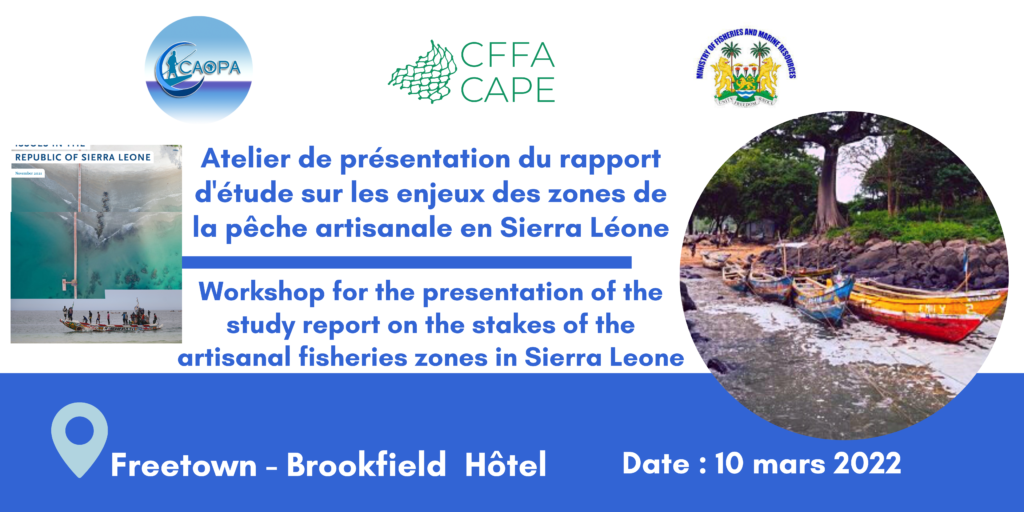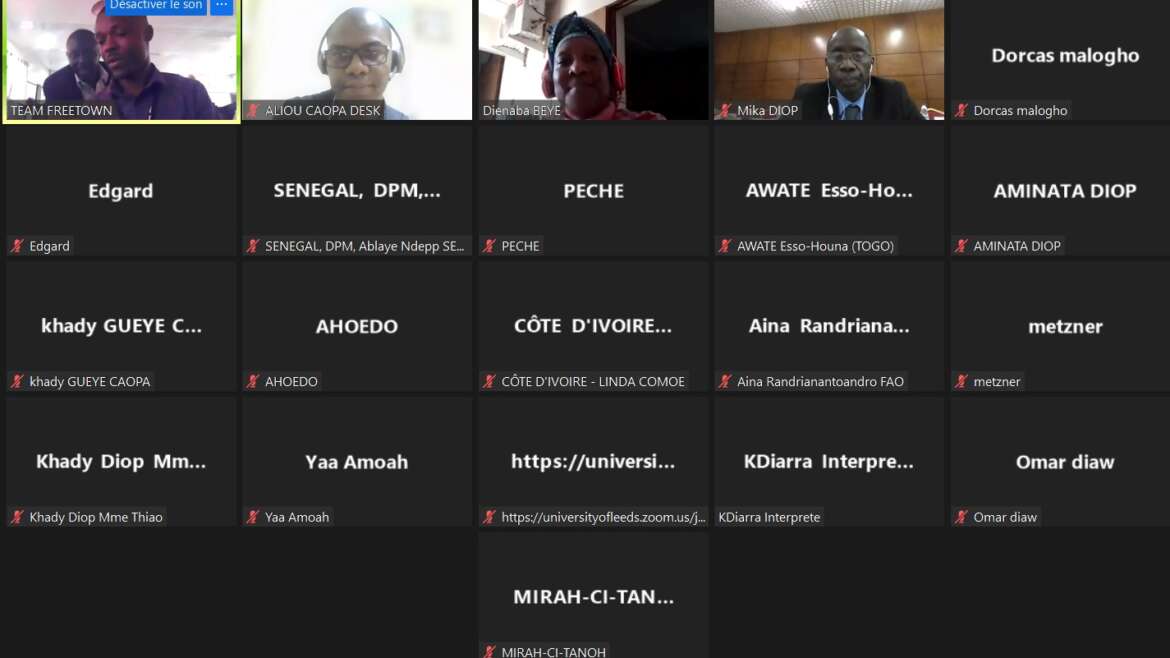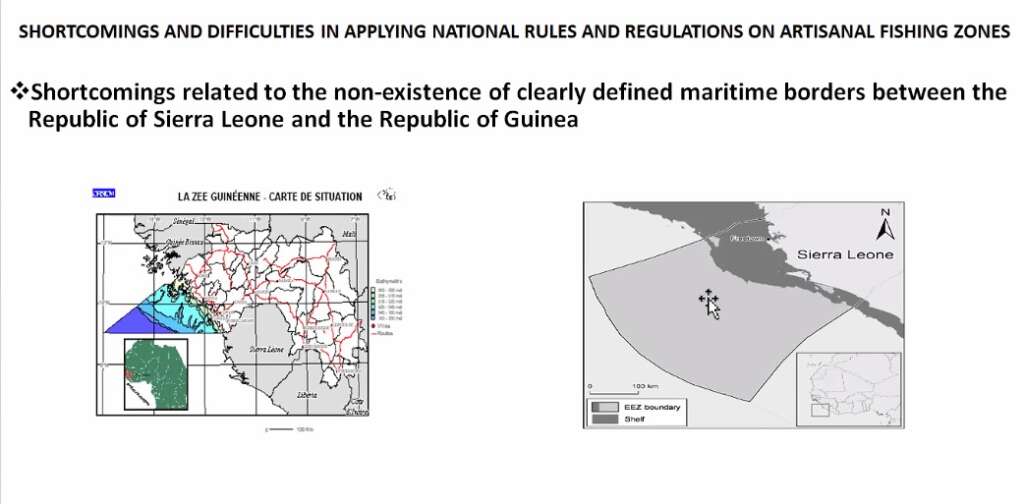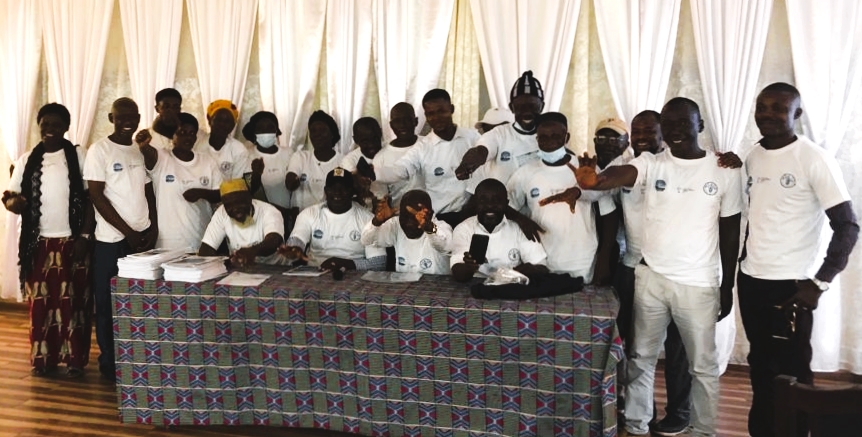Freetown – March 10th 2022 – A study on issues related to the regulation of artisanal fisheries zones is being initiated by the African Confederation of Professional Organizations of Artisanal Fisheries (CAOPA) with the support of the Coalition for fair Fisheries Agreements (CFFA) and the Swedish Society for Nature Conservation (SSNC). The aim is to feed the “International Year of Artisanal Fisheries and Aquaculture” (IYAFA 2022) decreed by the United Nations General Assembly.
 Indeed, CAOPA has commissioned a series of studies on the challenges of the artisanal fisheries zone for coastal communities in Sierra Leone, Ghana, Madagascar, Mauritania, Gambia, Senegal and Guinea.
Indeed, CAOPA has commissioned a series of studies on the challenges of the artisanal fisheries zone for coastal communities in Sierra Leone, Ghana, Madagascar, Mauritania, Gambia, Senegal and Guinea.
CAOPA made this study report public on March 10 in Freetown, through a workshop organized for this purpose.
The report was written by Mrs. Diénaba BEYE TRAORE, international legal expert and consultant. The study presents the different regulations related to artisanal fishing in Sierra Leone. Based on discussions with fishermen, the gaps in these legal texts are then identified and recommendations are proposed. The results are presented in a document that includes recommendations for the securing of artisanal fisheries zones in Guinea.
According to the results of the study, the Republic of Sierra Leone has implemented a fishing zone reserved for artisanal fishing called the Coastal Exclusion Zone, which is approximately 06 nautical miles. Despite the existence of this legally recognized artisanal fishing zone, conflicts between fishermen persist, the report says.
 Also, the study presents the different regulations related to artisanal fisheries in Sierra Leone. Based on discussions with fishermen, the gaps in these legal texts are identified and recommendations are proposed.
Also, the study presents the different regulations related to artisanal fisheries in Sierra Leone. Based on discussions with fishermen, the gaps in these legal texts are identified and recommendations are proposed.
Applicable international and regional fisheries regulations:
According to the report, the international legal instruments that can be identified include the multilateral conventions that the Republic of Sierra Leone has signed and ratified. The first convention is the United Nations Convention on the Law of the Sea (UNCLOS), particularly its Part II on the territorial sea, internal waters and the contiguous zone. However, this Convention does not specifically mention artisanal fisheries. Sierra Leone also ratified the Agreement on Port State Measures to Prevent, Deter and Eliminate IUU Fishing (AMREP) on May 30, 2017. However, it is not a party to the UN Agreement on Straddling Fish Stocks and Highly Migratory Fish Stocks (UNFSA, 1995), which includes references to artisanal fisheries. “The Republic of Sierra Leone has not signed any bilateral agreements on access to fishing zones with third States,” according to the Consultant.
 National regulation of artisanal fisheries zones: The regulation of fisheries zones is mainly provided by the Law on Fisheries and Aquaculture, 2018 (Law No. 48 of 2018) and its general implementing regulation 2019 (the Regulation on Fisheries and Aquaculture, 2019).
National regulation of artisanal fisheries zones: The regulation of fisheries zones is mainly provided by the Law on Fisheries and Aquaculture, 2018 (Law No. 48 of 2018) and its general implementing regulation 2019 (the Regulation on Fisheries and Aquaculture, 2019).
What about the Fisheries and Aquaculture Act, 2018 – Act No. 48 of 2018?
Part IV, Section 18 (Subsections 1 to 3) of this Act is directed at small-scale fisheries. According to the interpretation section of this recent law, artisanal fisheries “means small-scale, or commercial, fishing using an artisanal fishing vessel and gear, where the owner is directly involved in the day-to-day management of the business.” The same section defines the coastal exclusion zone as “all waters seaward of the low water line along the coast of Sierra Leone to the line joining the following latitude and longitude coordinates, as may be defined in regulations made under this Act,” the study report states.
Please download the full report in PDF.
Mamadou Aliou DIALLO


